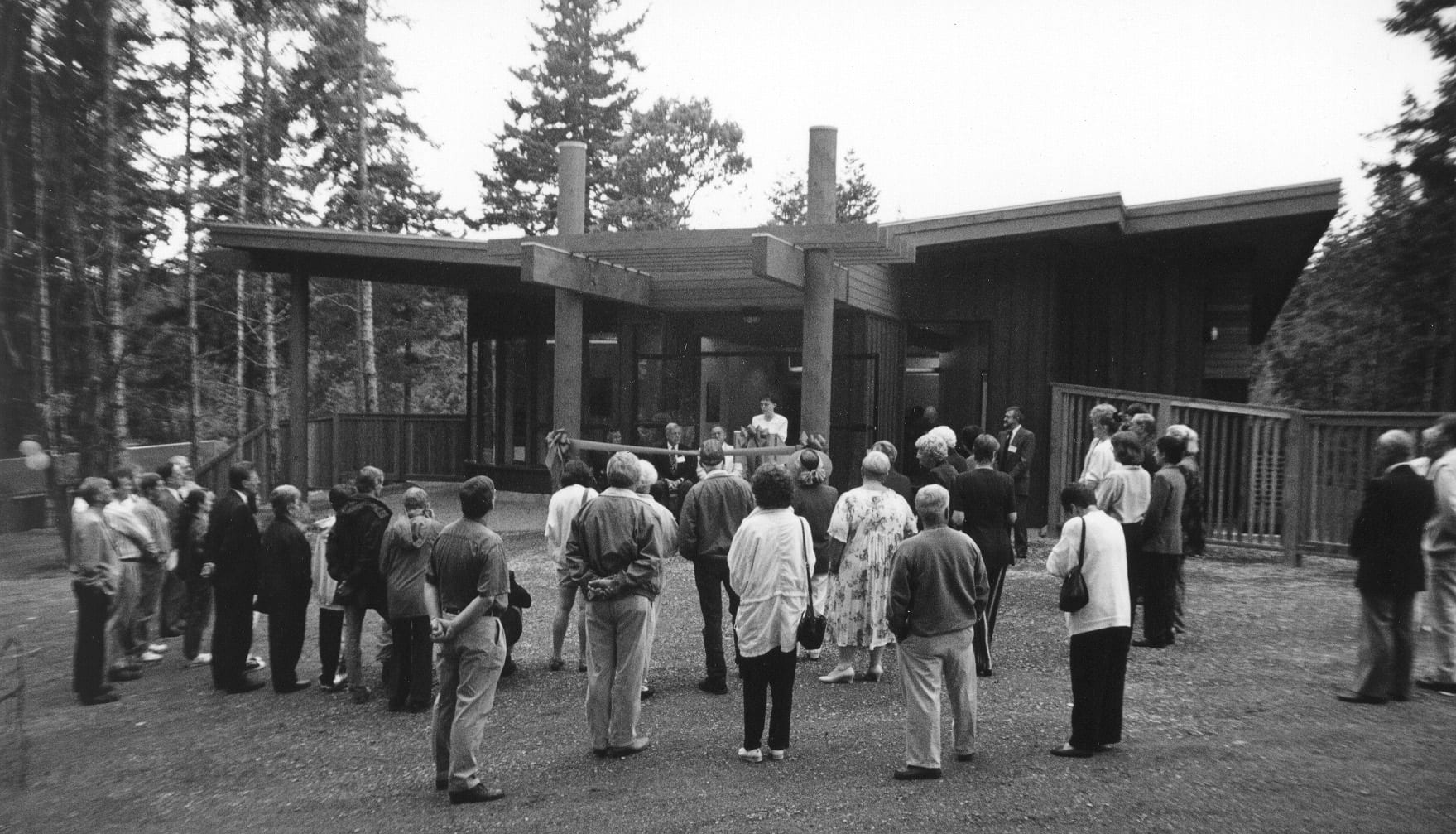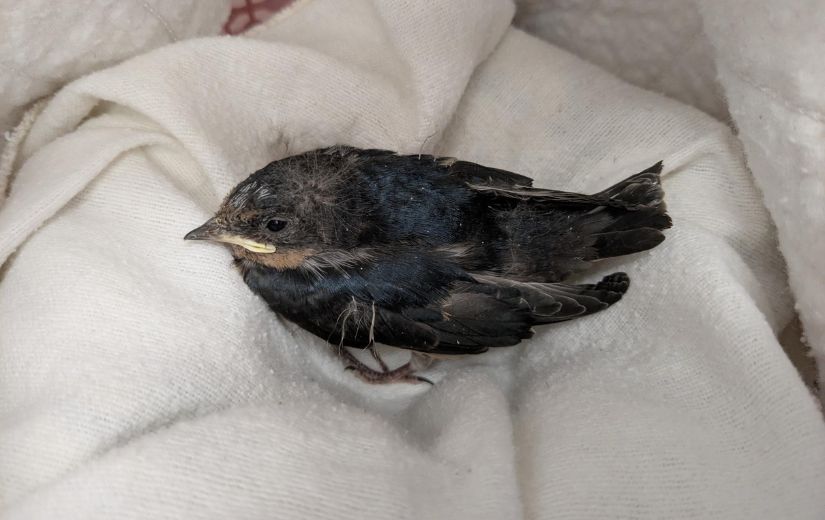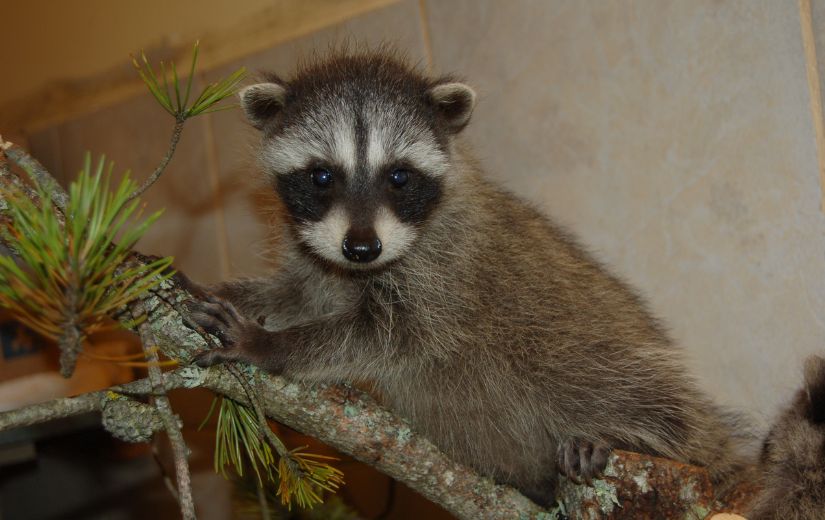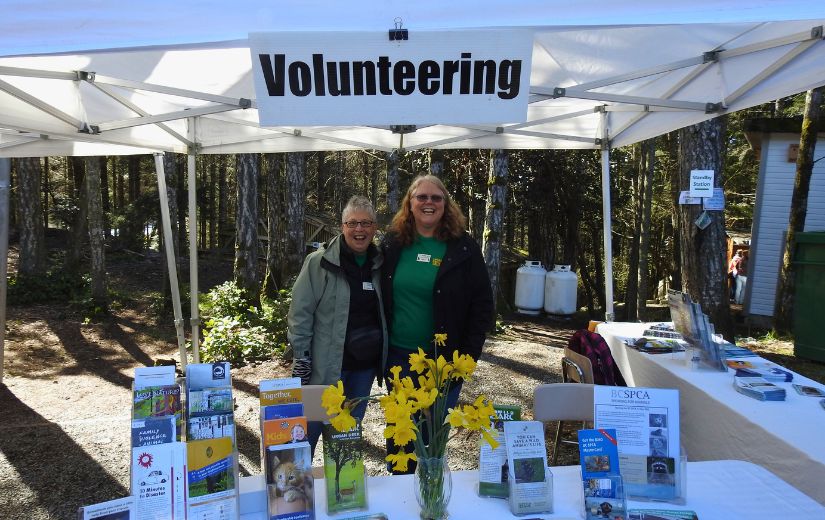The BC SPCA’s Wild Animal Rehabilitation Centre (Wild ARC) was created from the desire of the surrounding community to mitigate harm to wild animals and the centre remains a pillar of coexistence with the natural world today. Since Wild ARC’s doors opened in 1997, its facilities have grown and improved, animal intake numbers have doubled, and thousands of volunteers have dedicated their time to helping wildlife. It seems like just yesterday we celebrated Wild ARC’s 40,000th patient — a Swainson’s Thrush that needed treatment after colliding with a window — and now in our 28th year of operation, we are pleased to announce Wild ARC has admitted their 60,000th patient!

This barn swallow nestling soared into the 60,000th patient spot after being found on the ground of a barn on Salt Spring Island. Unfortunately, their nest was too high for an attempt to reunite them with their parents, and this delicate baby needed help fast! After collaborating with Island Wildlife Natural Care Centre, this barn swallow arrived at Wild ARC uninjured from their fall but dehydrated and hungry. Sadly their siblings weren’t so lucky, and this little bird is now housed inside with some adopted siblings.
This aerial insectivore has a high metabolism, needing to be fed every 30 minutes, and has already begun gaining weight while in care over the last few days! When they’re ready, they’ll be moved outside to a special enclosure lined with fine mesh to prevent them from damaging their feathers while they learn how to fly. They’ll need a few weeks to learn how to catch insects and “eat on the fly” — a tricky thing to learn without their parents, but our expert staff have some tricks up their sleeves to mimic this natural behaviour.

Barn swallows are just one species of aerial insectivores that are in decline across the province, and every attempt to rehabilitate and release them makes a difference! While the staff at Wild ARC have specialized expertise to provide appropriate care so this barn swallow grows healthy and strong, you can also make a difference for swallows by supporting their habitat around your home and calling your local wildlife rehabilitator if you think they need help. We look forward to seeing this nestling soar back into their wild home when they are ready!
Wild ARC has cared for over 180 species of wild animals including birds, mammals, reptiles and amphibians. While it is a privilege to help so many animals, this means that specialized facilities and highly trained staff are necessary to meet the needs of all the different species that come through the door. Raptors need large flight pens to exercise their wings and practice their flying; river otters and aquatic birds need specialized pool pens to practice their survival skills; and raccoons need plenty of opportunities to practice their climbing. Every enclosure must be adaptable, and the staff are always finding new ways to ensure patients can learn the skills they need while reducing stress for animals in care.
Join us in celebrating this milestone by donating $60 for the 60,000 patients treated at Wild ARC — and the many more that will be helped in the future!
Right now, Wild ARC is in its peak season with many orphaned wild babies needing intensive specialized treatment. Direct animal rehabilitation is just one service Wild ARC provides to the community. Although it’s not clear why this barn swallow was on the ground, most animals arrive at Wild ARC because they have been impacted by human activity such as collisions with vehicles, capture by free-roaming outdoor cats or off-leash dogs, collisions with windows or buildings, or disturbed or fallen nests when trees are pruned.

To address the root cause of these harms to wild animals, Wild ARC plays an essential role in providing education and advice to the public to prevent and minimize negative impacts of human activity on wild animals. This work is critical in creating a community of coexistence. Thank you for being part of our community and helping the lives of 60,000 animals while preventing harm and providing help for many more in the future!

Subscribe to the BC SPCA’s WildSense e-newsletter for more information:
The BC SPCA uses your personal information to update you on our work for animals as well as for advertising and analytics purposes. More information on uses and how to opt-out can be found in our Privacy Policy.

